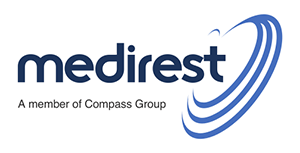The healthcare system in India has undergone the most strenuous and challenging time in the last two years. While it revealed its many strengths and has stood steadfast to serve humanity on an unprecedented scale, it also brought to light issues that patients and healthcare workers struggle with. The lack of available data and resources have created an immediate need for radical transformation to align the healthcare industry with the need and expectations of today’s evolved consumers.
While getting the right treatment and medical therapy will always remain crucial to a patient, there are other factors that play an important role in a patient’s healing journey as well. Food and nutrition – are an integral part of patient care and recovery. According to various studies conducted, undernourishment is prevalent in 15–70% of hospitalised patients, while 69% experienced a decline in nutritional status during their hospital stay. It is an aggravating problem demanding an immediate solution. A patient’s nutrition must not be neglected while they are admitted as the right diet not only aids physical recovery but also provides comfort on a psychological and emotional level. What Indian healthcare needs are a thorough approach to Medical Nutrition Therapy. Understanding the macro and micronutrients that go into each dish served and being able to tailor every patient’s diet through an in-depth understanding of their unique nutritional needs.
Amidst the COVID-19 pandemic, it has been of utmost importance to pay attention to the nutrition of patients more than ever. Food and mealtime have the potential to become the key uplifting factors for a patient undergoing a rather anxious and stressful stay at a hospital. Being able to choose from a variety of dishes instead of limited, uninspiring options would surely stimulate the patients’ appetite and put them on the road to recovery. Tech-enabled ordering of food would let patients, as well as their caretakers, have knowledge about the meals being served – from ingredients, nutritional value, segregation according to procedure-specific diets, to staples and superfoods. Food has a powerful psychological impact on people, and it has the potential to shift a patient’s reactive cure to proactive healing.
As the saying goes, “food is medicine”- food has the power to cure and heal. Nutrition interventions must be integrated into the provision of healthcare services. With the increasing number of emerging diseases, dietary needs are also diversifying. The healthcare system needs a procedure-specific approach when serving patients. Thoroughly researched and curated data that helps understand each patient’s macro and micronutrient requirements, allergens, demographics, cultural beliefs, and nutritional status at the time of admission should be curated and kept in mind while designing every patient’s dietary plan. Data and insights, when combined with a smart tech-enabled service, could become the key pillar in the healthcare industry’s transformation journey.
Such a solution would create a sensorial experience for patients. They would be able to enjoy a wide variety of nutritious food choices, and the ease of ordering, payments, and feedback management would improve patient satisfaction and contribute to their speedy recovery. Nutrition and wellbeing management would empower both patients and caregivers to create a calm and healthy environment, uplift the patient’s mood, accelerate their recovery and support healthcare workers to provide optimum care.

